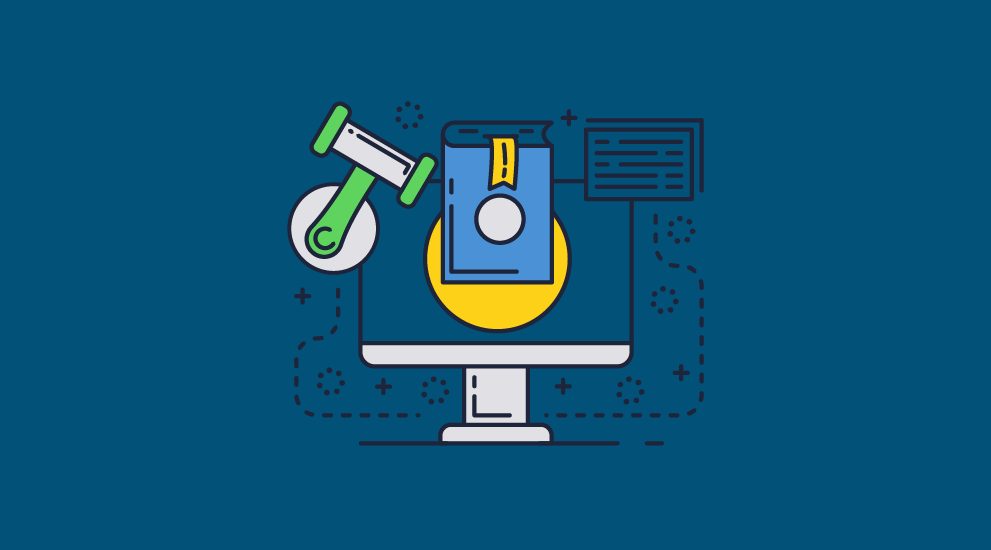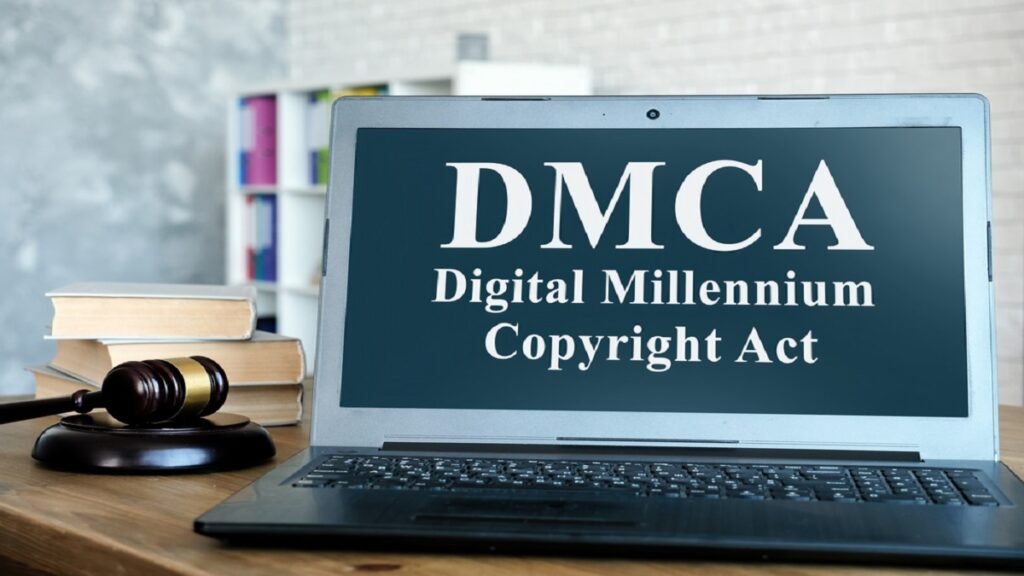In the digital world we live in now, material moves easily over global networks, and website administrators frequently don’t know or have complete control over it. You might be breaking the law if you maintain a tiny blog, run a SaaS business, or host user-generated material on a big platform.
The Digital Millennium Copyright Act (DMCA) gives authors, platforms, and users a way to protect their rights, but only if you know why you need a DMCA/copyright policy. It’s important to have a good DMCA/copyright policy, not just a suggestion. Here are some strong reasons why every website or online business should have and follow a DMCA/copyright policy.
Importance Of DMCA/Copyright Policy

1. Getting Safe Harbor Protections
The “safe harbor” provisions of the DMCA, which are technically known as the Online Copyright Infringement Liability Limitation Act, are one of the most important parts of the law and an answer to why you need a DMCA/copyright policy.
They protect online service providers from being held responsible for infringing material posted by users as long as certain requirements are followed. To qualify, your service must:
- Designate and register a DMCA agent and publish that info.
- Adopt and reasonably implement a policy for terminating repeat infringers.
- Accommodate standard technical measures.
- Have no actual or red-flag knowledge of infringement, act expeditiously upon notice to remove infringing material, and avoid receiving a direct financial benefit in situations where you have the right and ability to control the infringing activity.
Such safeguards can be the difference between routine operations and exposure to statutory damages and potential attorneys’ fees.
2. Legal Liability Reduction
Without complying with the DMCA’s requirements, you lose safe-harbor protection and could face liability for copyright violations—even if the material was uploaded by users. U.S. law provides for statutory damages for violations, plus legal fees—an enormous financial threat to any company or person.
3. Clear, Formal Response Mechanism
Implementing a DMCA policy entails outlining a clear procedure for processing infringement claims—covering everything from how to submit a complaint to user counter-notices:
- Demonstrates good legal faith.
- Enables fair treatment of disagreements.
- Signals to copyright holders that you respect their rights.
- Provides openness to users on how concerns are addressed.
4. Promotes Conscientious Hosting And User Conduct
A publicized DMCA/copyright policy sends a clear message to users: we handle copyright infringement seriously. When users are aware of the consequences—such as takedowns, account warnings, or even permanent bans—they are less inclined to post or spread illegal material.
This proactive approach develops a culture of accountability and respect for intellectual property within your community. Additionally, the policy may educate users about:
- What constitutes infringement?
- The value of employing original or licensed material.
- Fair use considerations.
By promoting responsible user behavior, companies lower the possibility of infringement while creating confidence with rights holders and genuine producers.
5. Encouraging Legal And Regulatory Compliance
A formal DMCA policy isn’t mandatory for every business, but it is a legal prerequisite to claim safe-harbor protection for user content. However, the world recognizes comparable mechanisms for copyright enforcement; thus, implementing such a strategy demonstrates a commitment to international compliance. Sustaining compliance entails:
- You must renew your DMCA agent designation with the U.S. Copyright Office at least every three years; otherwise it expires.
- Ensuring that your website or platform makes your policy clearly accessible.
- Maintaining clear records of takedown and counter-notice actions helps demonstrate compliance in case of disputes.
6. Stop People From Copying Content From Your Website
As a company, you invest a lot of time and money in hiring skilled WooCommerce developers to create a website that is rich in information. To raise your website’s position, you could work with the top SEO company.
However, the majority of companies are not aware that information from their websites is copied by other companies that are similar to them and even direct rivals. Indeed, the material you have laboriously produced may be useful to others.
Is there a mechanism in place at your company to track, monitor, and address copyright infringement? If you haven’t already, you need to think about putting one in place. This is due to the fact that keeping your competitive advantage online depends on identifying instances of copyright infringement as soon as feasible.
The excellent SEO performance of your website is one of the reasons why people copy material from it. Plagiarism is common in the e-commerce sector, despite the fact that every expert e-commerce website-building business recommends producing unique material.
Read More: How To Overcome Digital Fatigue In The Online Workplace
7. Protecting Your Intellectual Property
Understanding what the DMCA policy is protects your own work in addition to that of others. Your DMCA policy gives you the structure to swiftly and efficiently send takedown notifications in the event that your original content—such as blog entries, product descriptions, photos, or videos—is stolen and published elsewhere.
This lowers the chance of ranking/visibility issues that arise when search engines deduplicate similar copies while ensuring that your intellectual property is safeguarded. Companies that take proactive steps to safeguard their intellectual property:
- Maintain their reputation and brand worth.
- Steer clear of duplicate content problems to maintain improved search engine ranks.
- Encourage artists and partners who want to collaborate with a business that upholds intellectual property rights to feel more confident.
To put it another way, you’re defending yourself when you protect others.
8. Advancing Equity And Preserving Freedom Of Expression
While the DMCA primarily enforces copyright, its counter-notice process helps preserve fair use and freedom of expression. The counter-notice process lets users contest removals; service providers may restore content after 10–14 business days unless the claimant files suit—a safeguard that helps protect fair use. By assisting users and artists alike, your platform can:
- Don’t come off as controlling or prejudiced.
- Keep up a reputation for impartiality and openness.
- Encourage a thriving online community that strikes a balance between freedom and rights.
This well-rounded strategy also lessens the possibility of bad press or user outrage in the event that removal requests are contested.
A Few Words On Copyright Infringement
When someone copies, makes derivative works, displays, performs, or distributes any content protected by copyright without sufficient authority, it constitutes copyright infringement. This applies to all types of creative work—such as films, music, photographs, books, software, or textual content—regardless of whether the infringement was deliberate or inadvertent.
For example, if a copyrighted video is posted to YouTube without authorization, both the uploader and YouTube might, in principle, be held accountable for copyright infringement under U.S. law. However, sites like YouTube are allowed to function effectively without being regularly sued out of existence because of a vital clause in the DMCA known as the Safe Harbor.
The DMCA Safe Harbor safeguards online service providers from direct responsibility for infringing content that users post, provided the platform complies with particular conditions. These criteria include appointing and registering a copyright agent, establishing a clear DMCA policy, and quickly responding to legitimate takedown notifications by deleting the infringing content.
This legislative framework provides a balanced ecology. It permits content-sharing platforms to flourish, stimulates innovation, and provides rights holders with a solid means to secure their intellectual property. Without the Safe Harbor safeguards, platforms that depend on user-generated content—such as YouTube, Facebook, or even blogging platforms—would face insurmountable legal risks and possibly cease to exist in their present form.
For companies and authors, knowing how the DMCA Safe Harbor operates is vital. Not only does it clarify why you need a DMCA/copyright policy and explain why platforms enforce strict copyright restrictions, but it also highlights the importance of respecting intellectual property rights.
In essence, the DMCA Safe Harbor allows the internet as we know it today, striking a compromise between fostering innovation and guaranteeing the rights of content owners.
FAQ
Q: What is the DMCA’s primary objective?
A: A federal legislation known as the Digital Millennium Copyright Act (DMCA) of 1998 was created to protect copyright holders against online theft, or the unauthorized duplication or dissemination of their creations.
Q: Who enacted the DMCA?
A: The Digital Millennium Copyright Act (DMCA) addresses copyright in the context of digital networks and introduced significant amendments to copyright law. The U.S. Congress enacted the DMCA on October 12, 1998, and President Bill Clinton signed it into law on October 28, 1998, as Public Law 105-304.
Q: What advantages does DMCA offer?
A: Businesses may benefit greatly from adopting a DMCA compliance approach. It promotes a culture of intellectual property protection and respect, which not only protects the company’s own assets but also guarantees adherence to copyright regulations.







